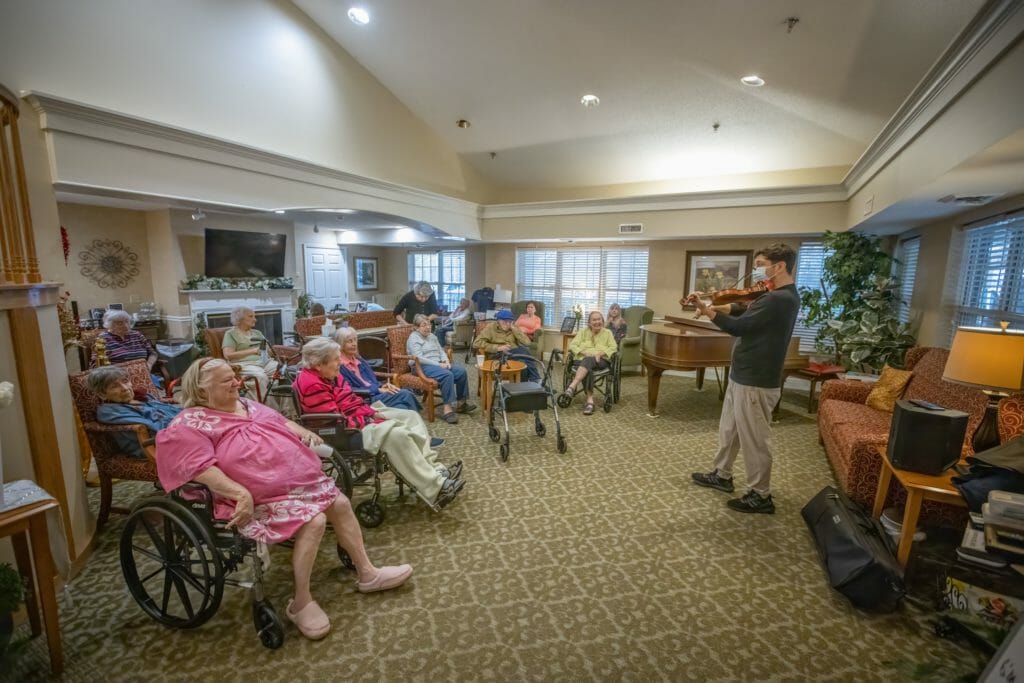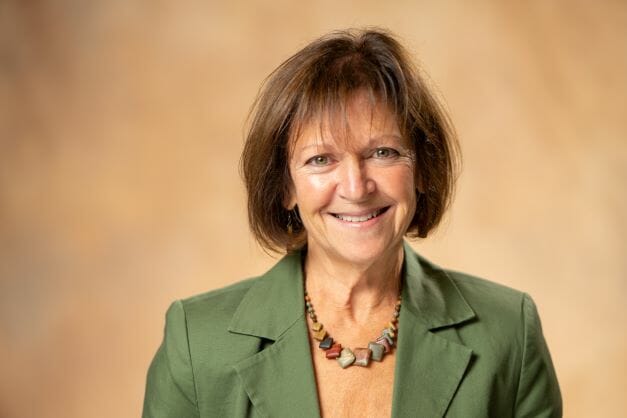
A national organization focused on improving quality in assisted living communities is moving to a new home to expand and intensify its efforts in research, practice and policy.
The national Center for Excellence in Assisted Living is now CEAL@UNC, located within the University of North Carolina at Chapel Hill, based in UNC’s School of Social Work and supported by the UNC Cecil G. Sheps Center for Health Services Research.
During a formal announcement Thursday, Lindsay Schwartz, PhD, immediate past chair of CEAL, said the move is a result of discussion on the organization’s next steps and finding a leader who was an expert in assisted living and could further CEAL’s mission in the area of research. Schwartz, the former associate vice president of workforce and quality improvement programs for the American Health Care Association / National Center for Assisted Living, left the association in 2022 to found Workforce & Quality Innovations LLC, where she is principal.
Launched in 2003 in response to a report and request from the US Senate Special Committee on Aging, CEAL was designed as a national collaborative to promote excellence in assisted living nationwide. Schwartz said that transitioning the organization to a “well-respected research institution” strengthens the organizations’ original mission.
“During my tenure as chair, one of my top priorities was for CEAL to be more involved in research that would impact both policy and practice,” she said. “With Sheryl Zimmerman, PhD, leading CEAL@UNC as executive director, Schwartz said, “this priority will be expanded upon to make an even bigger impact in our profession.”

Zimmerman is the University Kenan Distinguished Professor and co-director of the Sheps Center Program on Aging, Disability and Long-Term Care at UNC. She has been a leader in assisted living research and care for people living with dementia for more than 25 years, focusing on long-term care services and supports for older adults.
“Assisted living does matter to everyone,” Zimmerman said, adding that upcoming focus issues for CEAL@UNC will include models of assisted living, financing and workforce.
The center’s work is vital for ensuring that older adults have access to quality and supportive care that enables them to age with dignity and respect, Zimmerman said. UNC’s leadership in assisted living research, she added, positioned the university as an ideal home for the national center, as did the Sheps Center’s work to promote interdisciplinary programs and systems-level research and offer consultation, technical assistance and training.
“CEAL@UNC will work to expand the center’s capacity nationwide to develop evidence, bolster the workforce and promote the adoption of evidence-based practices and policies relevant to assisted living,” Zimmerman said, adding that partnerships with other universities, organizations and diverse stakeholder groups will drive the work. “Given that we’re talking about an entire system of care for older adults with diverse needs, the directions for CEAL@UNC are virtually limitless.”
Ramona Denby-Brinson, PhD, dean of the UNC School of Social Work, called Zimmerman the leader in the field of aging studies — specifically, assisted living. Bringing the national center to UNC is the culmination of Zimmerman’s portfolio of work and the partnerships and collaborations she has cultivated over the years, Denby-Brinson added.
“The field of social work brings evidence-based research, practice and policy to the assisted living profession and can help to ensure that our older Americans receive the quality support and services they deserve,” Denby-Brinson said.
Doug Pace, Alzheimer’s Association senior director of long-term and community-based services and CEAL@UNC’s incoming advisory board chairman, said the organization “is more than we could have dreamed of 20 years ago” when the recommendation was made to create the organization.
“We still have a lot of new opportunities and challenges ahead — like improving dementia care, advancing a person-centered care focus, a dedication to continuous quality improvement in a maze of state and federal regulations and policies,” Pace said. “CEAL@UNC’s achievements will advance the well-being of the people who live and work in assisted living.”




